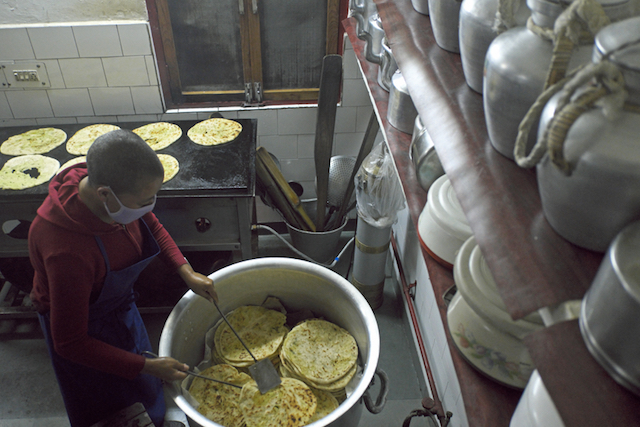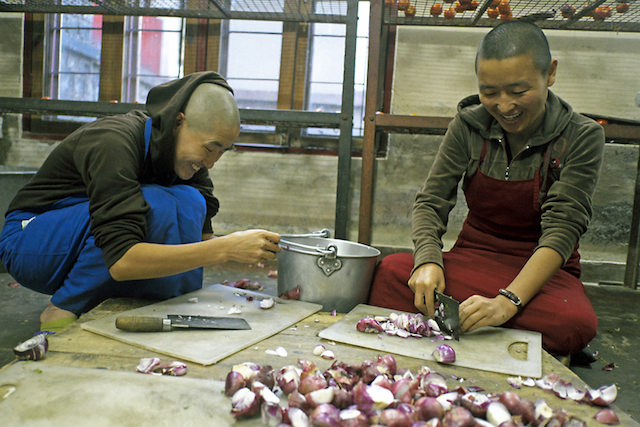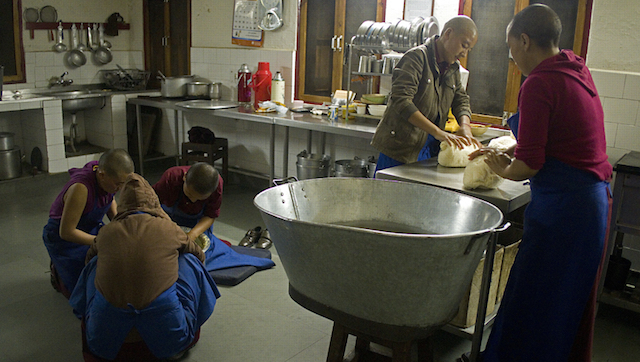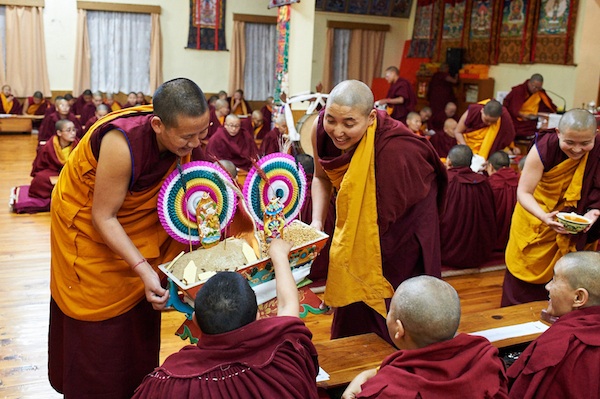It’s just past 3 a.m. and the nuns on kitchen duty at Dolma Ling Nunnery in northern India are already hard at work boiling water and heating up griddles to prepare breakfast for about 280 nuns and staff.

In the shelter of the cowshed, the nunnery’s small herd of dairy cows are still asleep. The nuns will milk them around 6:30 a.m. and carry their sweet, fresh milk in pails to the kitchen, where it will be used to make both traditional Tibetan butter tea and Indian-style sweet tea.
In this blog post we’d like to take you behind the scenes at some of the seven nunneries in northern India supported through the Tibetan Nuns Project. We offer profound thanks to our sponsors of nuns whose generosity feeds over 700 nuns every day.

Chopping vegetables for about 280 people is a big job at Dolma Ling. The nuns take turns on kitchen duty. This photo and the above kitchen photo are courtesy of Brian Harris.
For 2,500 years, since the time of the Buddha, nuns and monks have relied on the generous support of the lay community for their daily food. The practice of generosity (dana) is the first of the perfections or paramitas in both Mahayana and Theravada Buddhism. Offering food to monastics is a meritorious act. As Milarepa, the great Tibetan yogi and poet, said, “The practitioner and benefactor offering food create the cause to achieve enlightenment together.”

It’s long before dawn when the nuns assemble in the kitchen to start preparing breakfast. Meals are prepared collectively in the nunnery kitchens. Photo courtesy of Brian Harris.
In countries like Thailand, where Theravada Buddhism is practiced, monks and nuns go on daily alms rounds, carrying their alms bowls and accepting offerings of food from the local community. Continue reading

